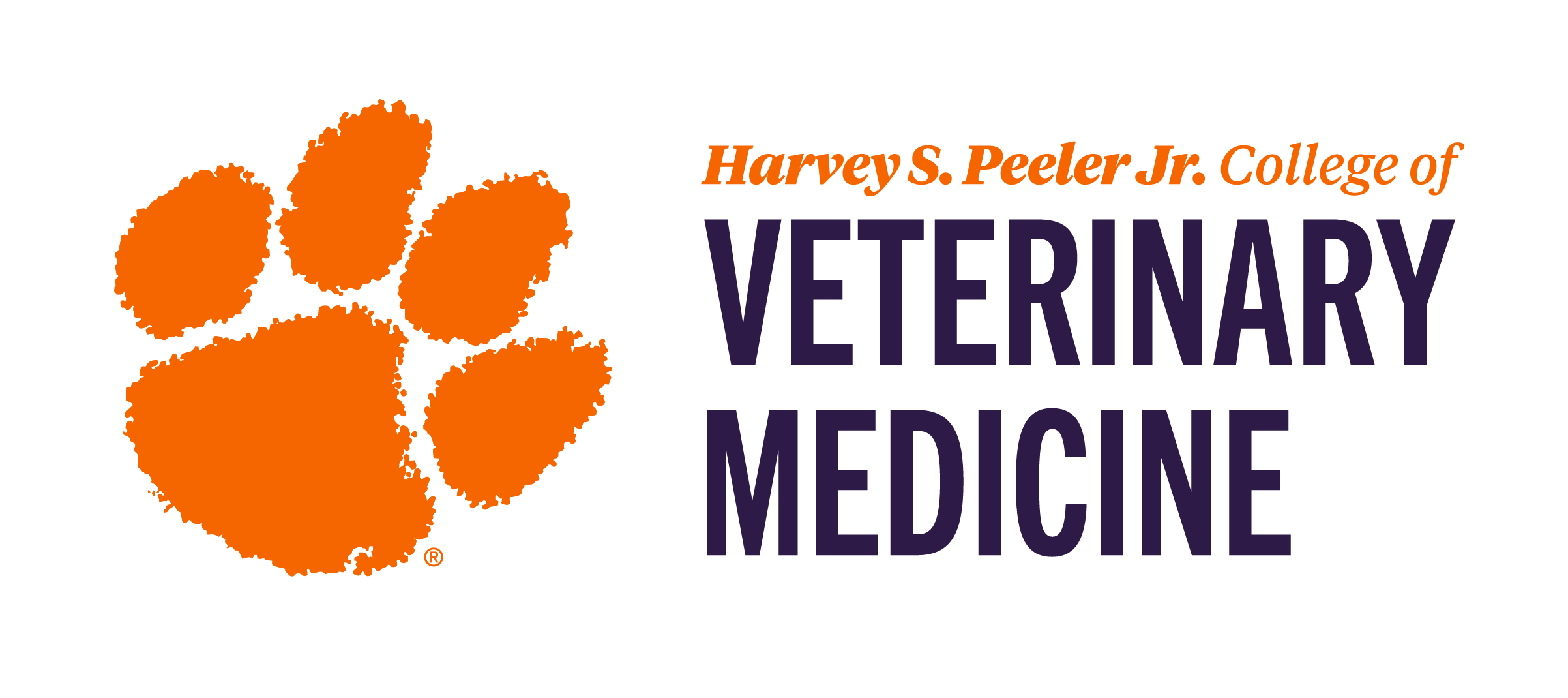Proposed DVM Curriculum
Students working toward their doctorate of veterinary medicine (DVM) will be equipped with proper scientific knowledge and the necessary skills to become a working professional in veterinary medicine. The Harvey S. Peeler Jr. College of Veterinary Medicine will serve as South Carolina's college of veterinary medicine.
In our four-year DVM program, students will learn in brand new, state-of-the-art facilities, beginning with foundational courses that will develop their knowledge in small and large animal medicine. As the program progresses, there will be a variety of professional skills introduced, empowering students to become capable, well-rounded individuals. Clinical rotations will be introduced in the fourth year, allowing students to put into practice their scientific knowledge and professional skills through exposure to the vast career opportunities within veterinary medicine.
Review details of the curriculum and the course catalog below.
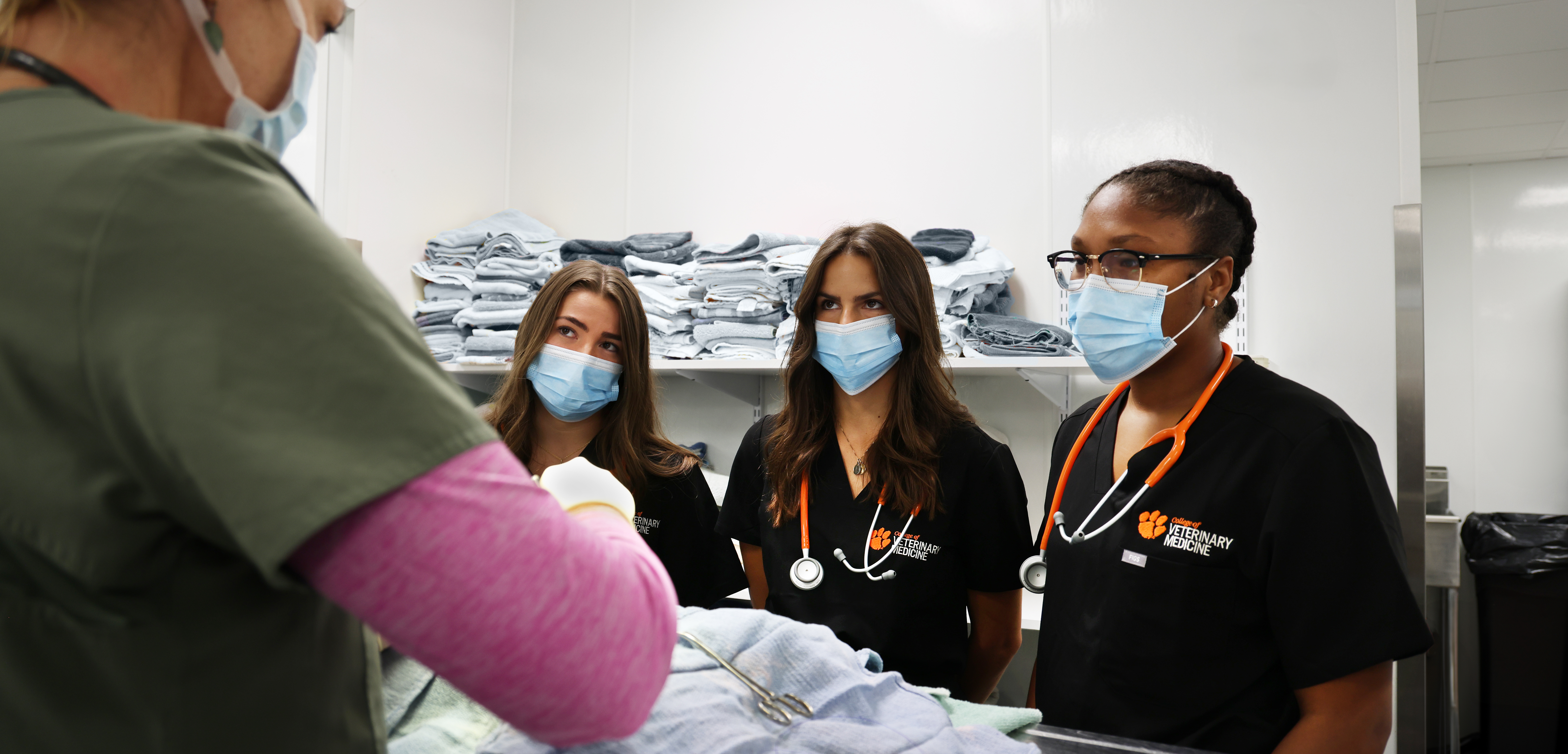
Achieve Your Goals in Veterinary Medicine
DVM Curriculum
-
Curriculum Overview and Course Catalog
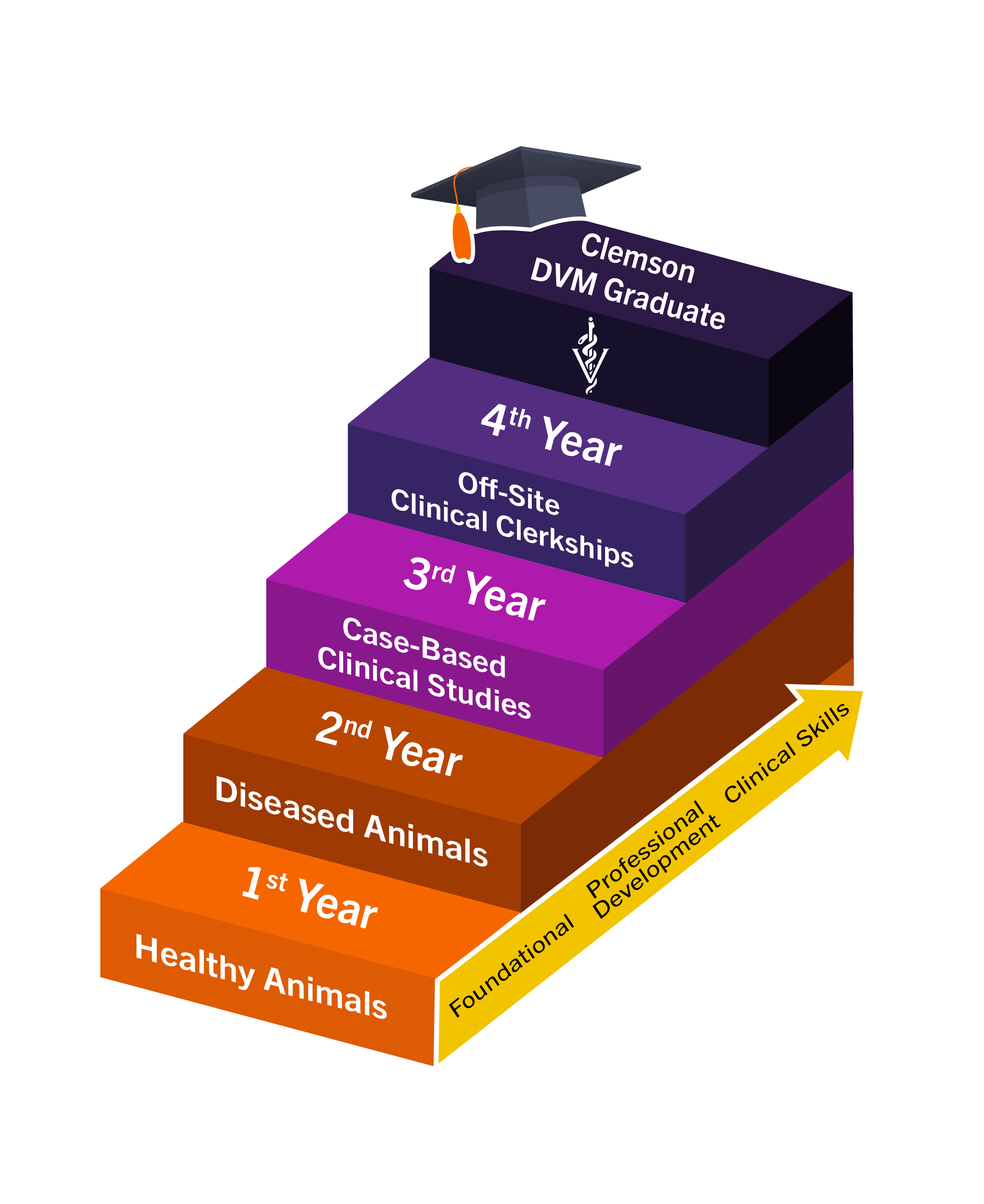
Our stair graphic depicts the DVM curriculum from years one through four. Students will build on each year of the curriculum, gaining foundational knowledge, professional development, and clinical skills.
Take an in-depth look at the Course Catalog in the proposed curriculum. The four-year DVM program is comprised of 160 credits. Students must pass all courses each semester to progress in the program and meet degree requirements for graduation.
For a breakdown of each year, please click the dropdowns below.
-
Competency-Based Education
The curriculum will follow best practices in medical education by being competency-based. The framework of the Harvey S. Peeler Jr. College of Veterinary Medicine coursework and assessments are based on the peer-reviewed American Association of Veterinary Medical Colleges (AAVMC) Competency-Based Veterinary Education (CBVE) model. This ensures that our curriculum is learner-centered and outcomes-based.
The Clemson DVM Program Outcomes consist of nine domains. Through the organization of these domains and the competencies provided in each, students will be given a roadmap for understanding the goals and outcomes required to be a successful, competent veterinarian upon completion of the program.
Domains of Competence

Clinical Reasoning and Decision-Making
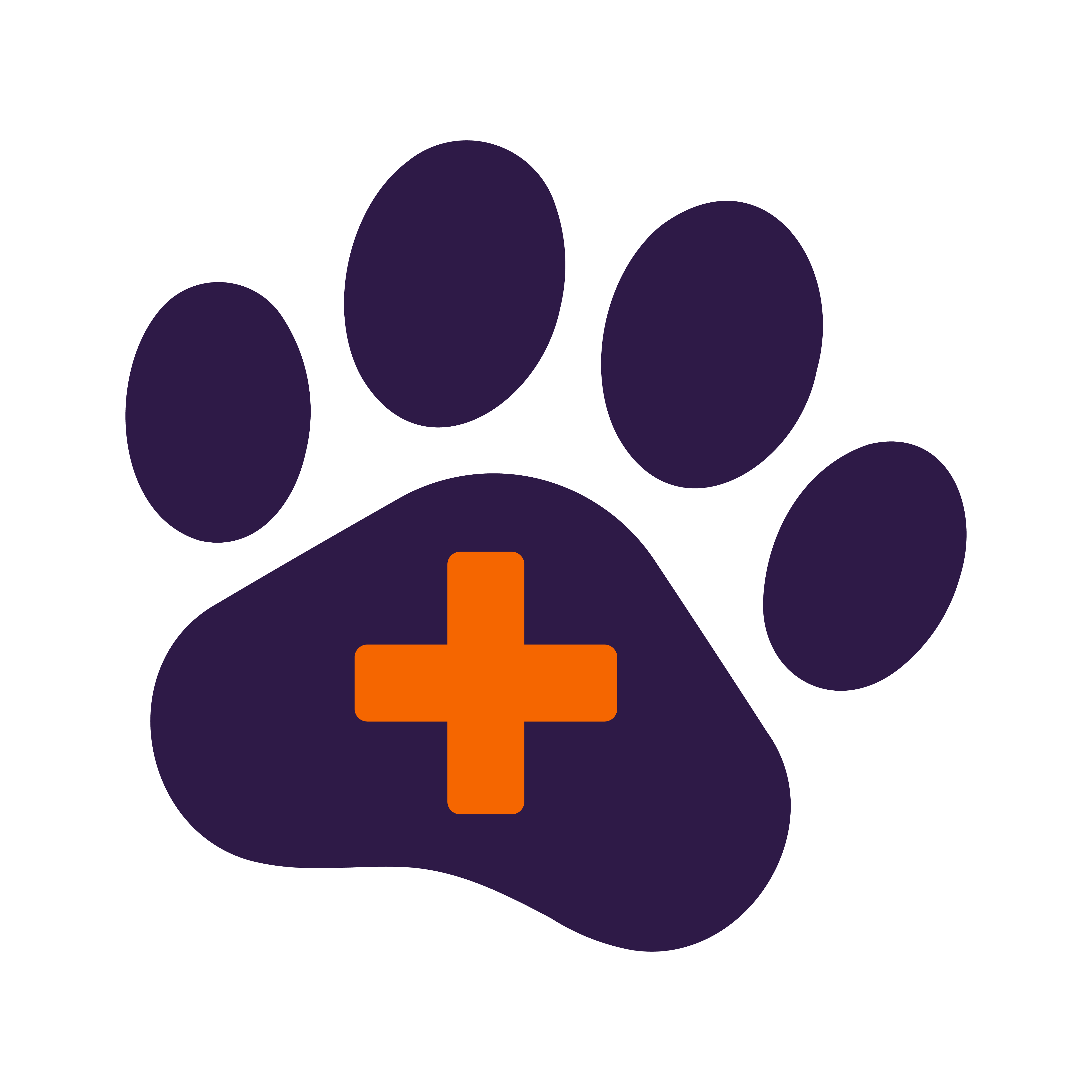
Individual Animal Care and Management
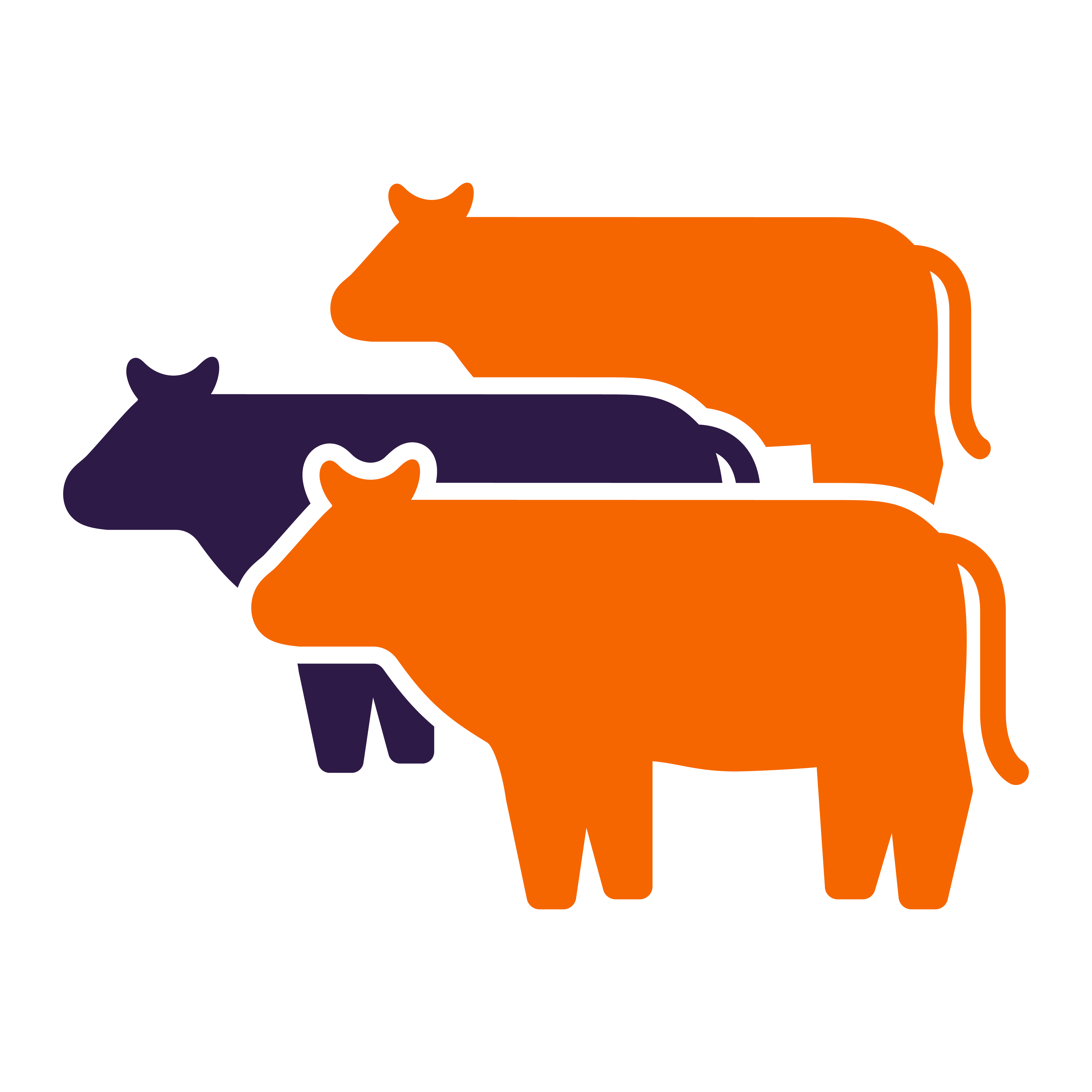
Animal Population Care and Management

Public Health

Communication

Collaboration

Professionalism and Professional Identity

Financial and Practice Management

Scholarship
-
Year 1
The first year of any DVM program is challenging. At Clemson, the structure of this transition year has been developed with the students’ well-being in mind. The Professional Development courses will help with this transition and lay the foundation in important areas like communication, well-being, financial literacy and ethics.
The scientific coursework in the first few weeks will allow students to revisit what they learned in their undergraduate courses, framing that knowledge in the context of clinical veterinary practice. This knowledge will be put to the test as students learn anatomy, physiology and imaging of domestic animal species in The Healthy Animal course series.
The content in these courses will align with the Clinical Skills courses where students are immersed right away in hands-on learning with both simulation models and live animals (of all shapes and sizes!).
-
Year 2
The second year revisits and expands on what was learned in the first year by switching gears to The Diseased Animal course series. Using a systems-based team-taught approach, students will learn to associate clinical problems with diagnoses in areas like pathology, parasitology, virology and microbiology.
The Professional Development and Clinical Skills course series also progresses, presenting students with more complex knowledge and skills. By the end of the second year, students will use an ultrasound probe, be confident in their surgical knots and anesthesia protocols and be comfortable with gathering a history from any client!
-
Year 3
The Fall of the third year is when the students get to put their knowledge and skills from the 1st two years into practice! In service to local shelter and rescue groups, the students will perform free exams, preventative care measures, spay/neuters and dental procedures. Under the guidance of our talented faculty, students will take the lead on case management from start to finish. This, combined with their case-based lecture courses in small animal, equine and farm animal, makes for a busy semester.
The last Spring semester on our campus is dedicated to preparedness for the 4th year clerkships. A focus is placed on clinical reasoning, case management and achieving milestones for basic medical and surgical competencies in a set of “miniature rotations” both on and near the Clemson campus.
Aside from client communication labs, the Professional Development course series will prepare students to enter their clinical clerkship rotations, take the NAVLE®, and negotiate for that perfect job!
-
Year 4
Year four of the Clemson DVM Program will provide students with hands-on clinical training across the spectrum of veterinary workplace environments and clientele. Clinical rotations (i.e. Clerkships) throughout the year include a mixture of both on-campus and approved off-campus clinical sites located throughout South Carolina and surrounding areas. During the clerkship experience, students will perform all the essential activities expected of a general practitioner. Workplace training will occur with the entire clinical team including DVMs, LVTs, practice managers and client support specialists. Supervision of the entire training process is provided by the on-site veterinarians and Clemson CVM faculty members.
Clinical Training Network sites (approved Clinical Partners) include practices and experiences in all corners of the state, encompassing all types of veterinary practice. These practices are organized by geographic hubs shown below on the state map. Students can select and rank their choices for clerkship experiences based on geographic location and career goals. Scheduling the 44 weeks of clerkship rotations will be completed with consideration for students to live near home and/or family support, thus reducing financial burden when possible.
See the image below for a view of the clinical training network map*.
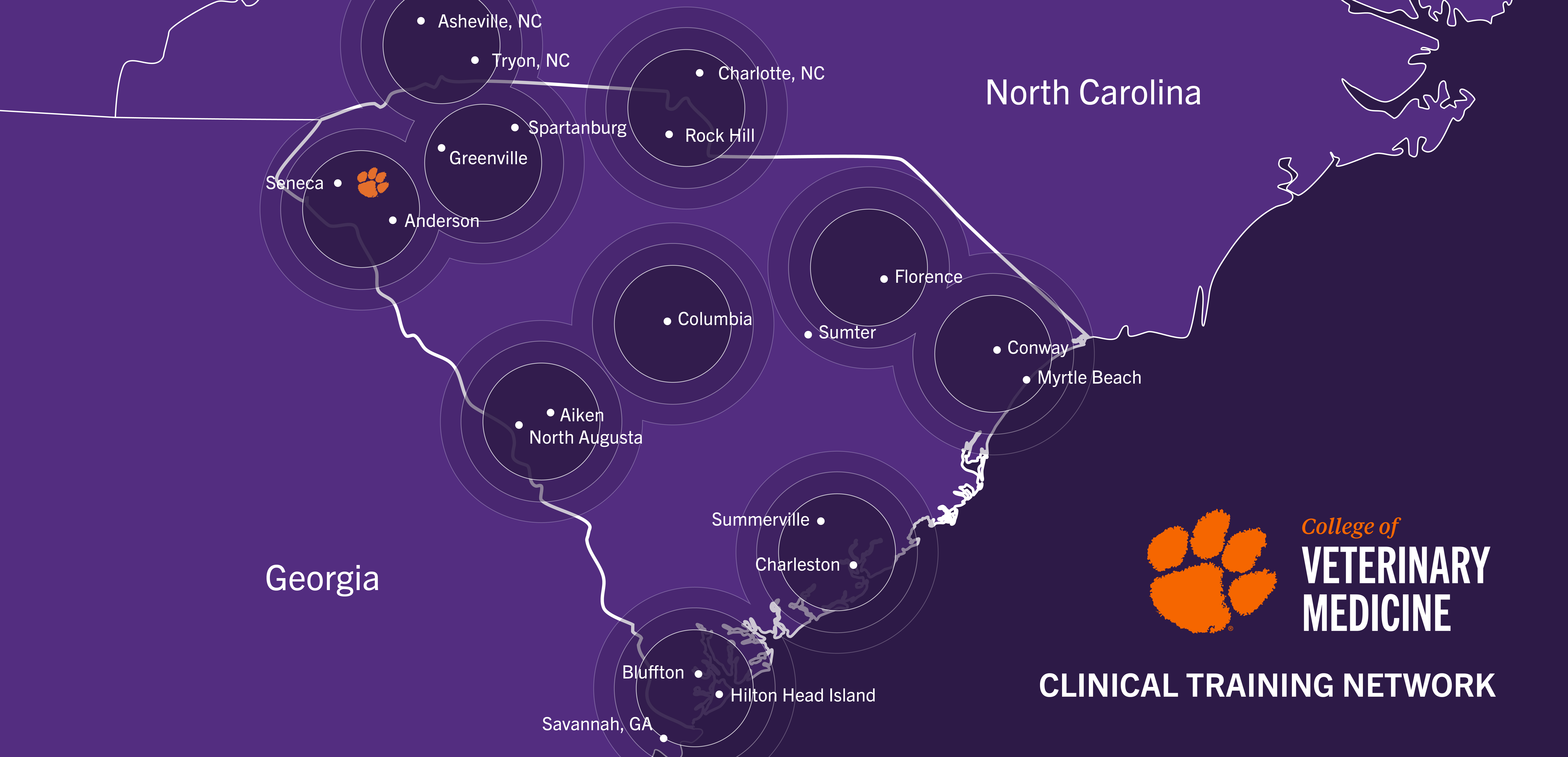
*The clinical training network is organized into regional “communities” to provide a range of opportunities and minimize relocations for year four students. Partners outside of these communities can still apply to participate. Future communities may develop as the program grows.
-
Year 4 Clinical Training
Year 4 Clinical Training
Weeks
Clinical Training
(44 weeks)Required Clerkships
(22 weeks)Clemson CVM
(On-Campus) 73%Large Animal General Practice 6 Small Animal Community Practice 4 Diagnostic Pathology 2 Diagnostic Imaging 2 Anesthesia & Analgesia 2 Clinical Partners
(Off-Campus) 27%Small Animal General Practice 4 Specialty Practice 2 Elective Clerkships (Clemson CVM and Clinical Partners) 12 Externships 10 Licensing Exam Preparation 4 Vacation/Wellness Time 4 Total Weeks
52
-
Degree Requirements
The Clemson Harvey S. Peeler Jr. College of Veterinary Medicine four-year DVM program is comprised of 160 credits. Students must pass all courses each semester to progress in the program and meet degree requirements for graduation. Graduates must also achieve proficiency in all required competencies.
Additional Resources
Statement on Inclusive Excellence
The Harvey S. Peeler Jr. College of Veterinary Medicine (CVM) is committed to the University's core values of integrity, respect, diversity, patriotism, excellence and self-reliance. We aspire to create a community that welcomes all students, staff and faculty working as a team towards common goals. Furthermore, the CVM aspires to foster a community where all members thrive and will do so by building positive relationships, broadening collective understanding, providing experiential learning opportunities and engaging in innovation and collaborative research.
